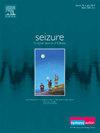Transition from paediatric healthcare to adult healthcare for young people with epilepsy in the UK: A scoping review
IF 2.8
3区 医学
Q2 CLINICAL NEUROLOGY
引用次数: 0
Abstract
Purpose
The aim was to identify and synthesise published research on transition from paediatric to adult healthcare for Young People with Epilepsy (YPE) in the UK.
Method
We undertook a systematic search of studies published in peer reviewed journals and conference abstracts. We also conducted online searches to identify epilepsy transition resources available from the National Health Service (NHS) and charities. Resources were rated for quality with a bespoke checklist.
Results
We identified 12 peer-reviewed studies, 13 conference abstracts and 2 dissertations. Included were 22 observational studies, 3 interventional studies and 2 studies that combined designs. We also identified 6 quality improvement projects. Lack of continuity of care from paediatric to adult services was a common concern across studies. Five studies explored the impact of transition on parents, noting how they are often anxious about transition and can struggle ‘to let go’. Parents also feel that their knowledge of their child’s condition reduces after transition, whilst there is also reduced knowledge amongst adult healthcare providers, particularly regarding rare epilepsies and specialised treatments. Three studies noted how YPE’s psychological wellbeing deteriorates during the process as support lessens. Two studies, focussing on rare conditions, highlighted that experiences of transition were negative. Only 10/218 (5 %) of NHS providers had specific epilepsy transition resources available. The quality of resources varied, but some examples of good practice were identified. NHS resources focused on logistics of transition and the stakeholders involved in the process, whilst charity resources focused on the interests and skill development of the YPE. Resources neglected SUDEP, peer group support and empowering the YPE in managing their condition.
Conclusion
Lack of continuity in the healthcare system results in poor experiences of the transition process in the UK. Few NHS providers have epilepsy specific resources, and quality of existing materials is inconsistent. More studies are needed to understand the key components of effective transition. Epilepsy transition resources would benefit from co-creation with YPE and caregivers.
从儿科医疗保健过渡到成人医疗保健的年轻人癫痫在英国:一个范围审查。
目的:目的是确定和综合发表的研究从儿科过渡到成人医疗保健的年轻人癫痫(YPE)在英国。方法:我们对发表在同行评审期刊和会议摘要上的研究进行了系统的检索。我们还进行了在线搜索,以确定国家卫生服务(NHS)和慈善机构提供的癫痫过渡资源。使用定制的检查表对资源的质量进行评级。结果:我们检索到12篇同行评议研究、13篇会议摘要和2篇论文。包括22项观察性研究,3项介入性研究和2项联合设计的研究。我们还确定了6个质量改进项目。从儿科到成人服务缺乏连续性的护理是所有研究中共同关注的问题。五项研究探讨了转变对父母的影响,指出他们经常对转变感到焦虑,并且很难“放手”。父母们还认为,在过渡时期之后,他们对孩子病情的了解减少了,而成人保健提供者的知识也减少了,特别是关于罕见癫痫和专门治疗的知识。三项研究指出,YPE的心理健康状况在这一过程中随着支持的减少而恶化。两项研究着重于罕见的情况,强调过渡的经历是消极的。只有10/218(5%)的NHS提供者有专门的癫痫过渡资源。资源的质量各不相同,但确定了一些良好做法的例子。NHS资源侧重于过渡的物流和参与过程的利益相关者,而慈善资源侧重于YPE的兴趣和技能发展。资源忽视了猝死症,同伴团体支持和授权YPE管理他们的病情。结论:缺乏连续性的医疗保健系统的结果在英国的过渡过程经验差。很少有NHS提供者有癫痫专门资源,现有材料的质量不一致。需要更多的研究来了解有效过渡的关键组成部分。癫痫过渡资源将受益于与YPE和护理人员的共同创造。
本文章由计算机程序翻译,如有差异,请以英文原文为准。
求助全文
约1分钟内获得全文
求助全文
来源期刊

Seizure-European Journal of Epilepsy
医学-临床神经学
CiteScore
5.60
自引率
6.70%
发文量
231
审稿时长
34 days
期刊介绍:
Seizure - European Journal of Epilepsy is an international journal owned by Epilepsy Action (the largest member led epilepsy organisation in the UK). It provides a forum for papers on all topics related to epilepsy and seizure disorders.
 求助内容:
求助内容: 应助结果提醒方式:
应助结果提醒方式:


